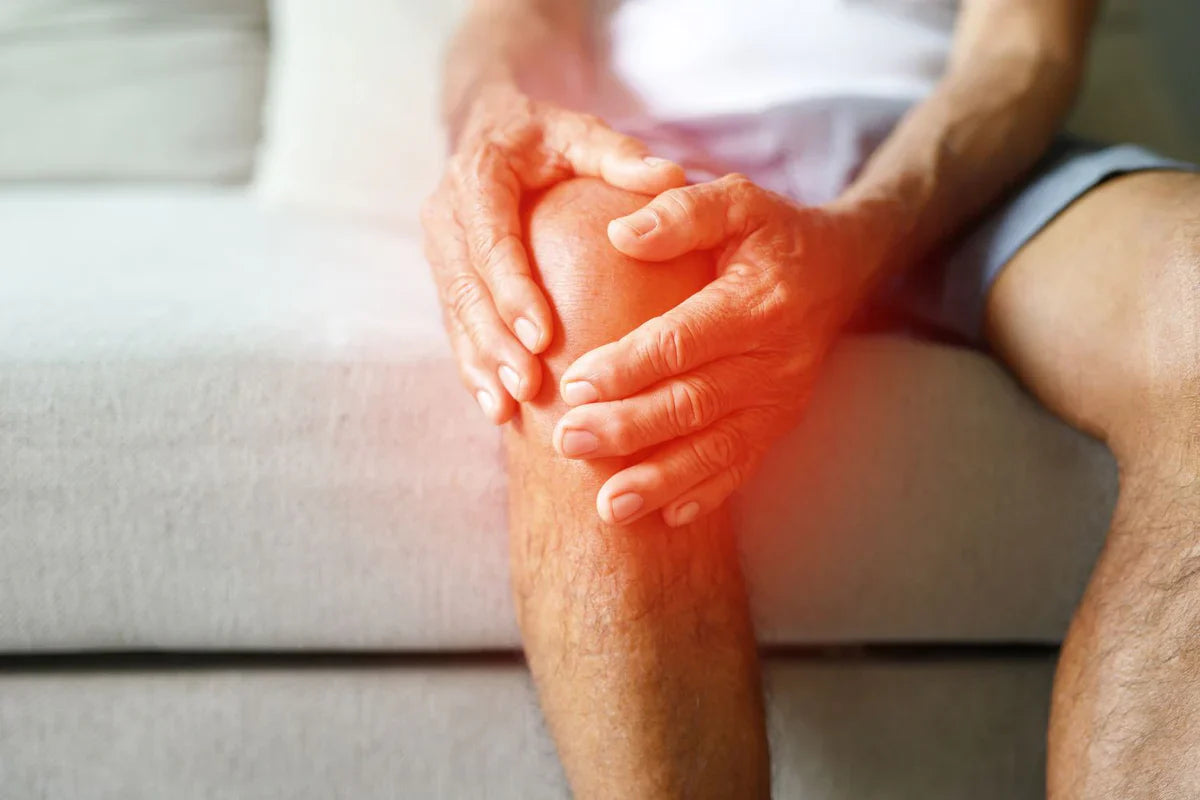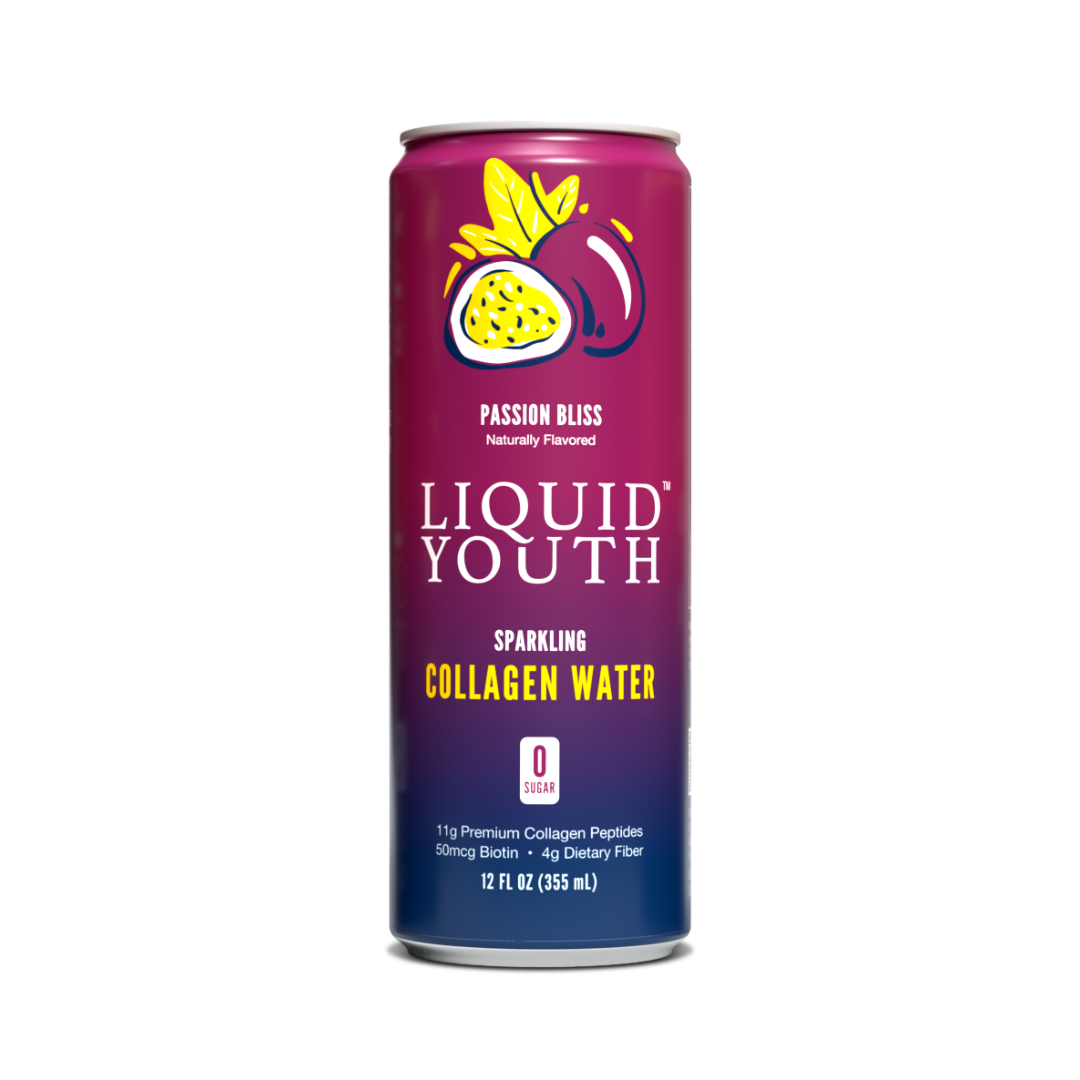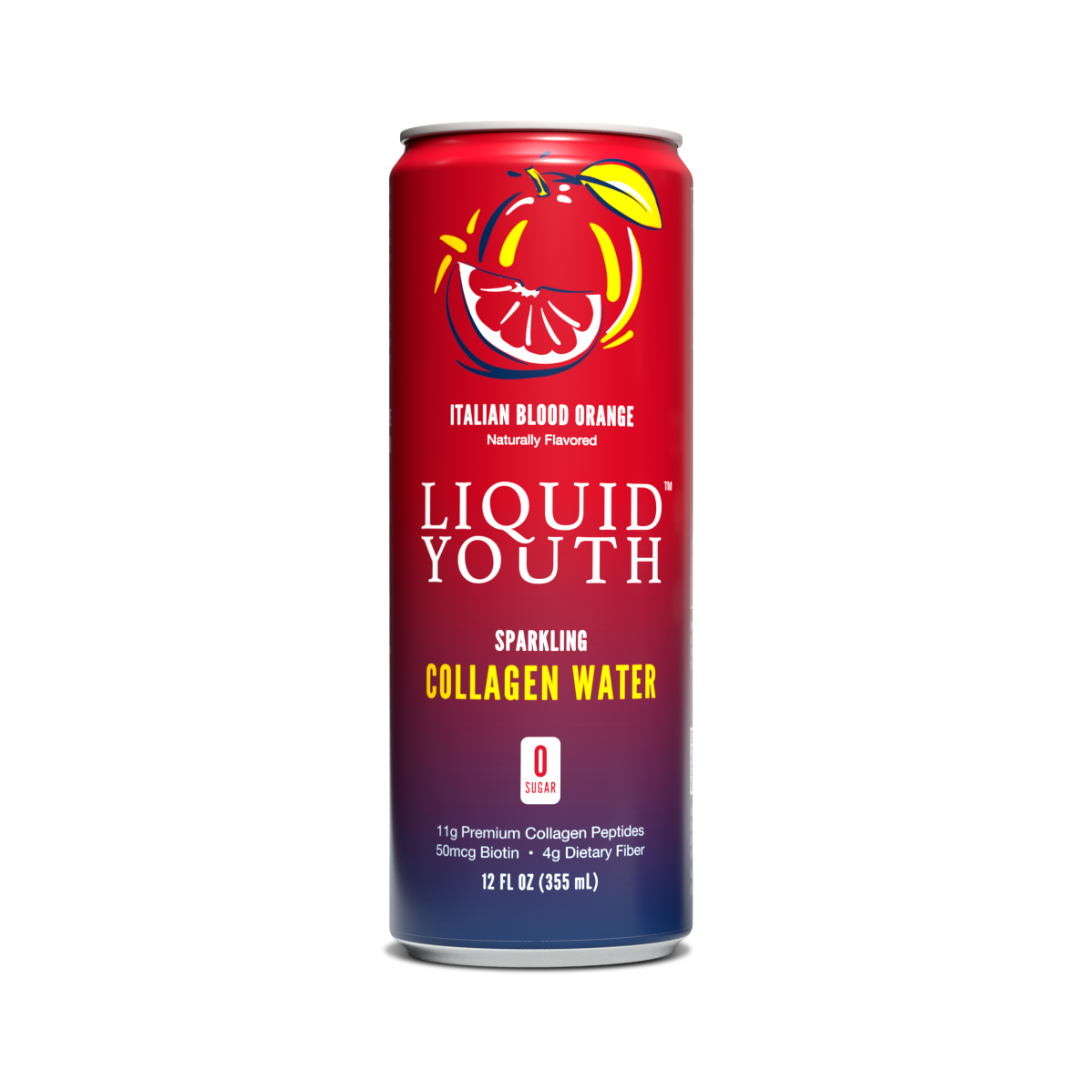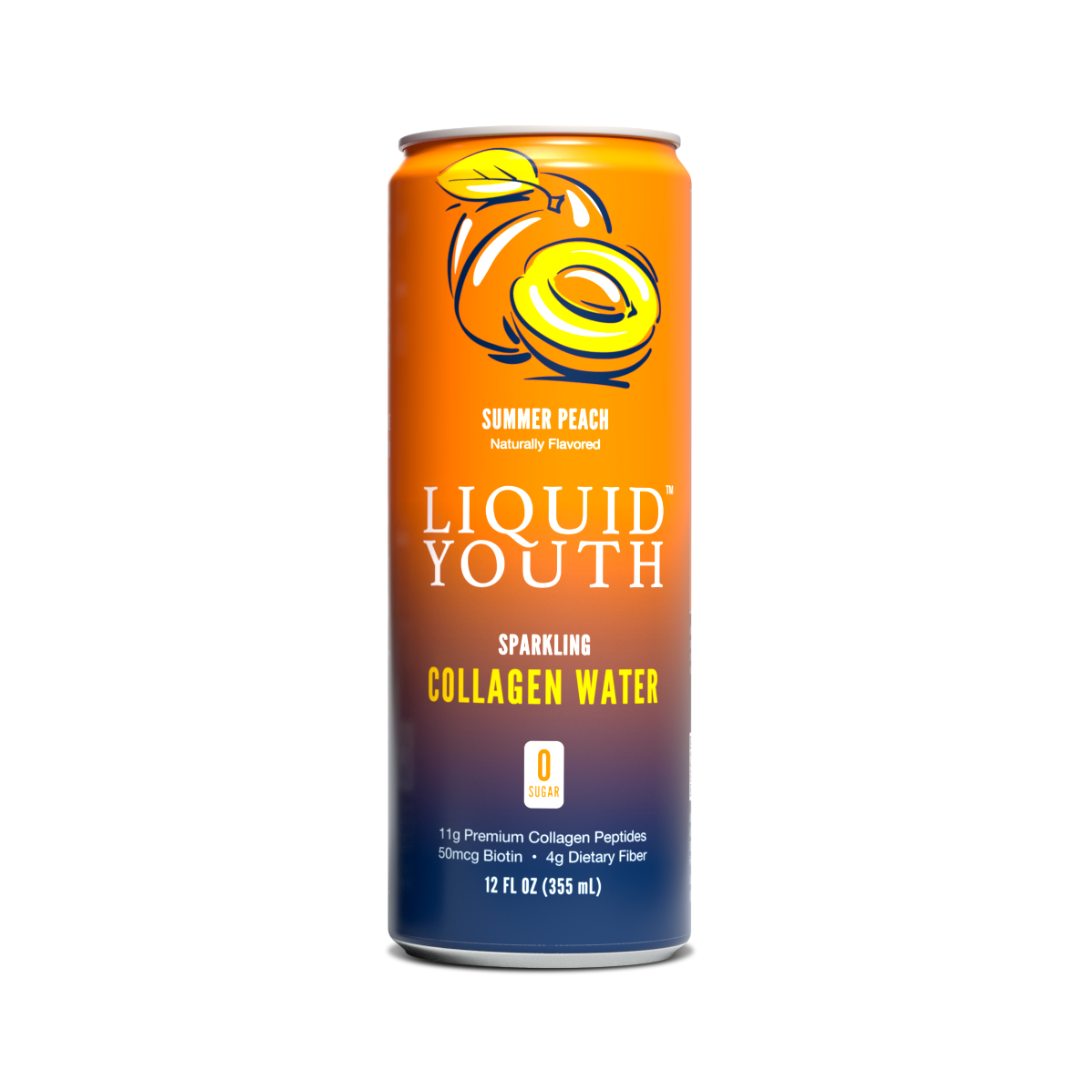Key Points:
-
Collagen peptides offer a natural way to reduce joint pain and inflammation, making them a potentially safer option than synthetic anti-inflammatory drugs.
-
Studies have found that collagen peptides are beneficial in reducing joint pain and stiffness.
-
Unlike NSAIDs, collagen peptides have minimal side effects, making them a safer, longer-term option for managing chronic pain and inflammation.
NSAIDS: Are There Safer Alternatives?
Nonsteroidal anti-inflammatory drugs (NSAIDs) are commonly used to relieve pain and inflammation. Many people, including athletes, rely on NSAIDs daily for joint comfort and to maintain physical activity. Around 30% of adults in the U.S. use NSAIDs regularly, including a significant portion of athletes who take them to manage pain and perform better in their training and competitions.1
Prolonged NSAID usage carries serious health issues, including stomach problems, kidney issues, and heart risks.2-4 NSAIDs like ibuprofen and naproxen may even increase the risk of bone fractures, as they can slow down the body’s natural bone-healing process—a concern especially relevant for athletes.5 This high dependence emphasized the need for safer alternatives, especially those with minimal side effects. Research indicates that collagen peptides and knee pain management go hand-in-hand with improved joint function and reduced discomfort, even in high-stress activities.
The Antioxidant Effects of Collagen Peptides
Think of antioxidants as the body’s shield against harmful molecules (free radicals) that can damage cells. When free radicals build up, they can cause aging and contribute to health issues like arthritis, heart disease, and cancer.6 Most people associate antioxidants with vitamins like Vitamin C, but collagen peptides also contain specific building blocks that provide strong antioxidant effects.7-9
Collagen peptides have garnered significant attention in recent years due to their potential as antioxidants and anti-inflammatory agents. Collagen’s small molecular structure allows it to be easily absorbed more efficiently throughout the body. For example, collagen peptides are known for their high antioxidant potency due to their unique amino acid profiles, which are rich in glycine, proline, and hydroxyproline.10,11 Studies show that collagen peptides can lower oxidative stress by boosting the activity of the body’s natural antioxidants.12 Collagen peptides and knee pain management seem to work well together.
Collagen Peptides and Knee Pain: A Safe and Effective Natural Remedy
Research continues to emphasize the connection between collagen peptides and knee pain relief. Studies indicate that collagen peptides can effectively reduce pain and stiffness associated with joint conditions, without the adverse effects linked to NSAIDs. For example, a study demonstrated that daily supplementation of collagen peptides significantly reduced knee joint pain and improved physical function in young athletes with exercise-induced discomfort.13 Similarly, a 2023 demonstrated that collagen peptides helped people with arthritis feel less joint pain, improving their overall quality of life.14
Minimal Side Effects Associated with Collagen Peptides
As opposed to NSAIDs, which are associated with numerous side effects, collagen peptides, on the other hand, provide a natural anti-inflammatory effect without these risks. 15 This favorable safety profile positions collagen peptides as a feasible option for chronic pain management, especially in populations at higher risk of NSAID-induced side effects.
For example, in a trial examining the impact of collagen peptides on knee joint function, no adverse side effects were observed, even at high doses over an extended period.16 This safety profile makes collagen peptides a viable alternative to NSAIDs, especially for older adults and athletes who may face increased risks from NSAID use. The growing awareness of the adverse effects of prolonged NSAID use has prompted many to consider options like collagen peptides for knee pain.
Embracing a Safer Approach to Pain Management
As research continues to emphasize the adverse effects of prolonged NSAID use, collagen peptides offer a promising alternative for pain management, especially for individuals seeking a safer, long-term solution. By effectively reducing joint pain and stiffness while avoiding the side effects associated with NSAIDs, collagen peptides and knee pain management align with the growing focus on sustainable health practices.
For athletes and individuals experiencing chronic joint discomfort, incorporating collagen peptides into a daily routine may support both joint health and overall well-being. The shift towards safer alternatives like collagen peptides marks a positive development in pain management, offering individuals a path toward improved quality of life without the harmful side effects of traditional medications.
How to Take Collagen Peptides for Optimal Knee Health
Incorporating collagen peptides into your routine is simple:
Dosage: Experts recommend 10 grams per day or more for joint health.
Timing: Take collagen peptides with a source of vitamin C to boost absorption.
Forms: Collagen peptides are available as powders or ready-to-drink beverages.
References
1 Kviatkovsky, S. A., Hickner, R. C. & Ormsbee, M. J. Collagen Peptide Supplementation for Pain and Function: Is It Effective? Current Opinion in Clinical Nutrition & Metabolic Care 25, 401-406 (2022). https://doi.org/10.1097/mco.0000000000000870
2 Jaźwińska-Tarnawska, E. et al. Monitoring of NSAIDs adverse effects based on spontaneous reports from Wrocław regional adverse drug reactions monitoring center. Acta poloniae pharmaceutica 69 5, 979-984 (2012).
3 Lipinski, M. J. Gastroprotection during long-term NSAID use – what we know after 120 years of observations? Medycyna Faktów (2021).
4 Varrassi, G. et al. New Perspectives on the Adverse Effects of NSAIDs in Cancer Pain: An Italian Delphi Study from the Rational Use of Analgesics (RUA) Group. Journal of Clinical Medicine 11 (2022).
5 Rosenbloom, C., Okholm Kryger, K., Carmody, S. & Broman, D. Nonsteroidal anti-inflammatory drugs in football – a “Keeping SCORE” approach to judicious use. Science and Medicine in Football 8, 1 - 5 (2022).
6 Zhang, Y., Li, Y., Quan, Z., Xiao, P. & Duan, J.-A. New Insights into Antioxidant Peptides: An Overview of Efficient Screening, Evaluation Models, Molecular Mechanisms, and Applications. Antioxidants 13 (2024).
7 Aguirre-Cruz, G., León-López, A., Cruz-Gómez, V., Jiménez-Alvarado, R. & Aguirre-Álvarez, G. Collagen Hydrolysates for Skin Protection: Oral Administration and Topical Formulation. Antioxidants 9, 181 (2020).
8 Xie, Z. et al. Antioxidant and functional properties of cowhide collagen peptides. Journal of Food Science 86, 1802-1818 (2021). https://doi.org/https://doi.org/10.1111/1750-3841.15666
9 León-López, A. et al. Hydrolyzed Collagen—Sources and Applications. Molecules 24, 4031 (2019).
10 Deng, G. et al. Developments for collagen hydrolysates as a multifunctional antioxidant in biomedical domains. Collagen and Leather 5, 26 (2023). https://doi.org/10.1186/s42825-023-00131-9
11 Yazaki, M. et al. Oral Ingestion of Collagen Hydrolysate Leads to the Transportation of Highly Concentrated Gly-Pro-Hyp and Its Hydrolyzed Form of Pro-Hyp Into the Bloodstream and Skin. Journal of Agricultural and Food Chemistry 65, 2315-2322 (2017). https://doi.org/10.1021/acs.jafc.6b05679
12 Wang, J. et al. Spectrum-Effect Relationships Between High-Performance Liquid Chromatography (HPLC) Fingerprints and the Antioxidant and Anti-Inflammatory Activities of Collagen Peptides. Molecules 23, 3257 (2018). https://doi.org/10.3390/molecules23123257
13 Zdzieblik, D., Brame, J., Oesser, S., Gollhofer, A. & König, D. The Influence of Specific Bioactive Collagen Peptides on Knee Joint Discomfort in Young Physically Active Adults: A Randomized Controlled Trial. Nutrients 13 (2021).
14 Lee, H. J., Kim, D. u. & Ok Kim, C. The efficacy and safety of low-molecular-weight collagen peptides for joint pain in patients with osteoarthritis: A randomized, double-blind, placebo-controlled study. Journal of Functional Foods (2023).
15 Kviatkovsky, S. A., Hickner, R. C., Cabre, H. E., Small, S. D. & Ormsbee, M. J. Collagen peptides supplementation improves function, pain, and physical and mental outcomes in active adults. Journal of the International Society of Sports Nutrition 20 (2023).
16 Jerger, S. et al. Specific collagen peptides increase adaptions of patellar tendon morphology following 14-weeks of high-load resistance training: A randomized-controlled trial. European Journal of Sport Science 23, 2329 - 2339 (2023).





















